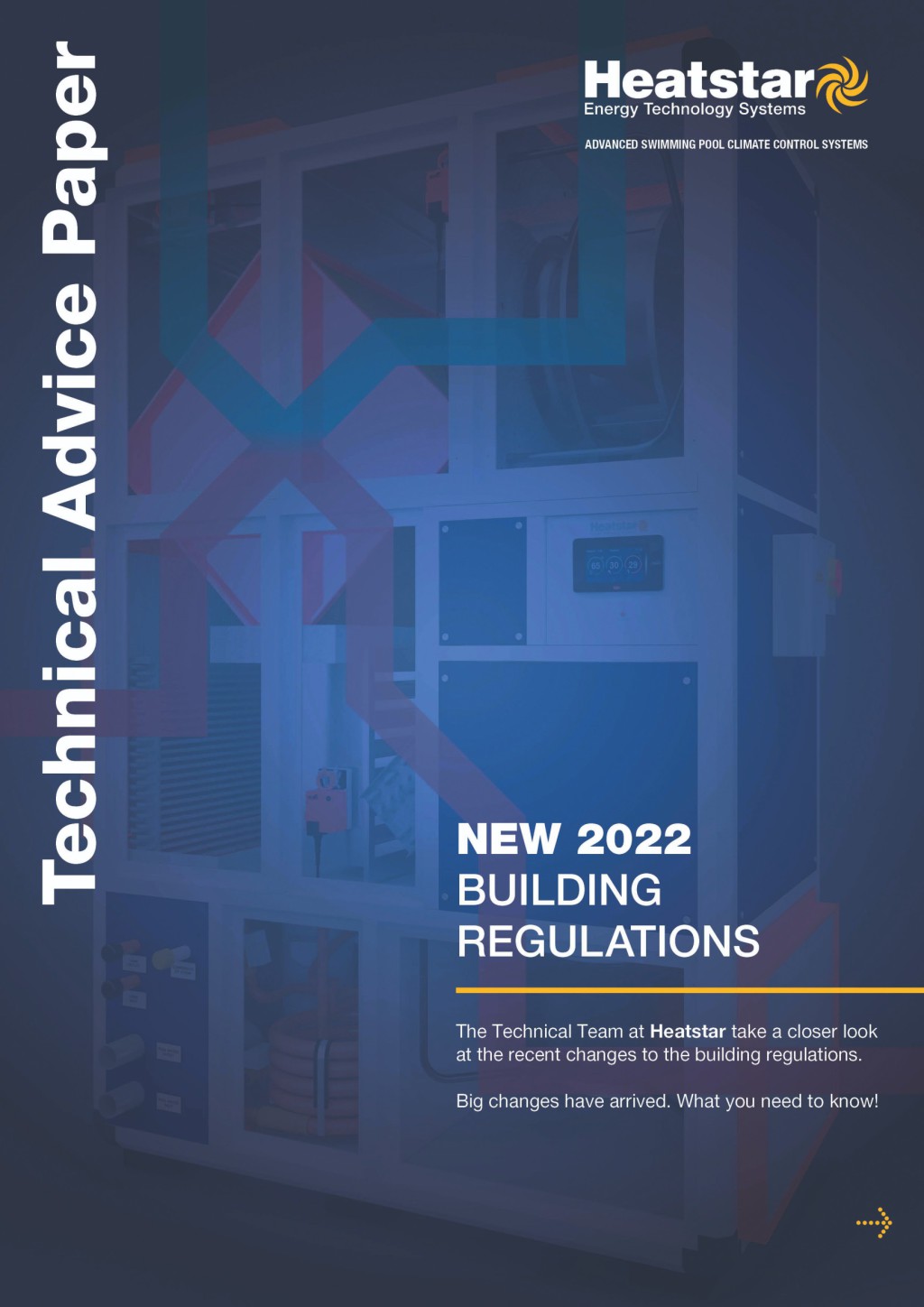Heatstar ensure building regulation compliance

Heatstar utilise dynamic hybrid technology to offer heat recovery on indoor pools with performances of over 90% dry heat saved from the expelled pool air and over 140% if also including allowance for latent recovery, all whilst staying fully compliant.
New building regulations brought in last year will see swimming pool installers look to ensure that when specifying environmental control equipment on future pool projects that compliance is met. Applicable to all new projects now presented for Local Authority
planning approval, the latest Building Regulations seek to achieve a whopping 30% reduction in carbon emissions over the outgoing regulations – and they affect indoor pools.
For over 40 years Heatstar have been guiding their clients towards responsible energy solutions for swimming pools, setting the benchmark in an environmentally conscious industry.
Heatstar utilise dynamic hybrid technology to offer heat recovery on indoor pools with performances of over 90% dry heat saved from the expelled pool air and over 140% if also including allowance for latent recovery, all whilst staying fully compliant.
The changes in 2022 to building regulations has seen Heatstar take measures to reassure the trade that their equipment offers not only fully compliance but also the best energy efficiency of any such system on the market. For reassurance Heatstar have put together a Technical Advice Paper to help understand these important changes. This can be viewed at https://bit.ly/41rseaS.







